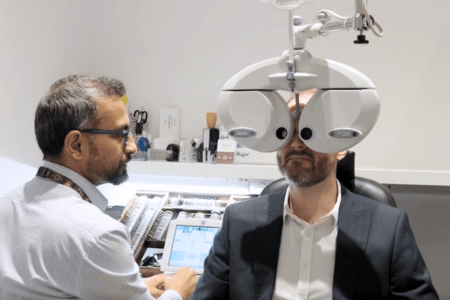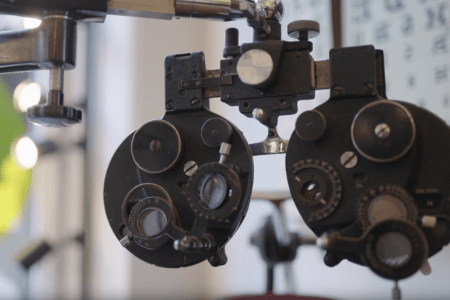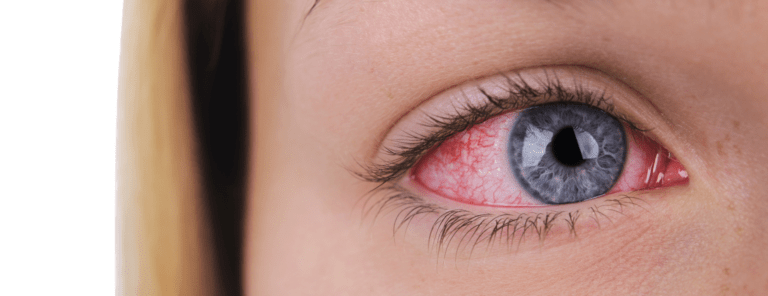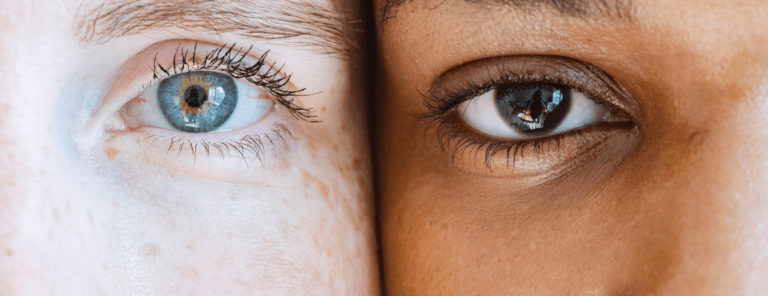
Floaters – THE EFFECTS, DIAGNOSIS AND TREATMENT
Eye floaters are those tiny spots, specks, threads, and “cobwebs” that drift around in your field of vision.
Your eyeball is filled with a substance called vitreous humour, a jelly-like fluid. As we age, the vitreous undergoes changes. It shrinks and detaches from the inside of the eye, causing deposits of various size, shape, and consistency that float around within the eyeball.
This separation is very common among those over 50 years of age. While this is annoying, ordinary eye floaters and spots are very common; they are not usually a cause for alarm and should not interfere with your sight.
WHAT DO FLOATERS LOOK LIKE?
Floaters differ from person to person. If you have floaters, you may experience:
- Tiny specks, clumpy or stringy
- Rings
- Fragments
- Threadlike strands, squiggly lines
- Cobwebs
- Light, gray or dark dots
- Noticeable on bright days or when looking at light coloured objects.
Most people notice floaters in their vision at some point in their lives and they are more common with age. Most of the time, these floaters are perfectly normal.
WHAT TO DO:
Most eye floaters and spots are harmless and merely annoying. Many will fade over time and become less bothersome. In most cases, no treatment is required.
- If they annoy you, try to get them out of your field of vision. Do this by moving your eyes to shift the fluid around. Look up and down, that usually works better than side to side.
- Try wearing dark glasses or sunglasses, especially in bright light or while looking at a light-coloured surface.
- If you have so many that they block your vision, your optometrist may suggest surgery.
WHEN TO SEEK HELP
If you see a shower of floaters and spots, or if you suddenly notice a large increase in floaters, flashes of light, or even a shadow across your vision, you should see one of our eye care professionals, or seek medical attention immediately, because this may indicate a more serious problem requiring referral and specialist treatment, such as a retinal detachment.






